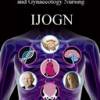Abstract
Title
A STUDY TO ASSESS THE EFFECTIVENESS OF SITZ BATH ON
LEVEL OF PAIN AMONG POSTNATAL MOTHERS WITH
EPISIOTOMY WOUND IN A SELECTED HOSPITAL AT TUMKUR
KARNATAKA
Author
Chitra Diwakaran, Managa Gandhi, Priya M
Email
winpriya6@gmail.com
keyword
Sitz bath, visual analogue scale, post natal
mothers, episiotomy wound
Abstract
Giving birth is one of the great honours
which god gave to woman, for this woman is respected
everywhere. Pueperium is a period when great changes
take place in a woman’s physical and mental setup that
may pose a challenge to postnatal women in various
ways. An episiotomy is the surgical incision made to
enlarge the vaginal opening for delivery of the baby’s
head. The concern of health personnel during this period
should be to provide comfort to her, help her in relieving
pain and to prevent infection. Enhancing healing of
episiotomy wound is one of the major concerns after a
normal delivery. Objectives: To assess the effectiveness
of sitz bath in episiotomy wound pain among postpartum
mothers. Participants and setting: 30 postnatal mothers
who fulfilled the inclusion criteria were selected (with 15
each in experimental group and 15 for control group.
Design: Quasi experimental design. Materials and
Methods: post natal mothers were selected by using nonprobability purposive sampling technique. The pre-test
level of pain was assessed using a visual analogue scale
for both the groups. Sitz bath education was administered
to the experimental group and the pre and post-test level
of pain was assessed for both the group. Results: The
result showed that in the experimental group, the pre mean score of pain level was 4.40 with an S.D of 0.736
and the post-test score was 2.86 with an S.D of 0.743 (t =
3.500 at df 14 *p<0.001), the control group pre mean
score of pain level was 5.0 with an S.D. of 0.753 and the
post mean score of pain level was 4.53 with an S.D. of
0.51640. In results shows that Control group and
experimental group having paired mean value difference
is 1.6667, in the t value is 7.123 at p<0.001. This
suggests that the effectiveness of sitz bath on level of
pain among postnatal mothers with episiotomy wound
had a stronger impact in the experimental group than the
control group. There was significant association between
experimental group posttest levels of pain with
demographic variables are age and status of pregnancy.
Conclusion: This study shows high statistical significance
and the overall post-test level of pains in experimental
group in comparison with the control group. Conclusions:
The study concluded that the sitz bath was effective to
reduce the episiotomy pain level for postnatal mothers













